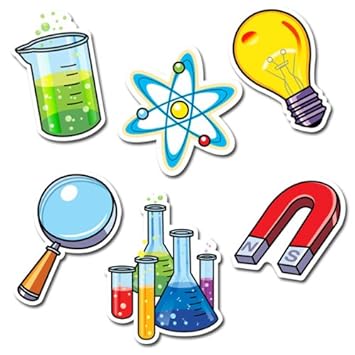
Our Spring Term topic in Year 6 is 'Earth Matters'
To view our suggested activities for the Spring term: Please click here
Reading

Read, read, read. Please read as much as possible at home. Find something that you enjoy and read it. When you come across unfamiliar vocabulary, ask an adult, check for a glossary or use a dictionary to find the meaning of the word before continuing. Practise your key reading skills of retrieving, inferring, explaining an author's choice, sequencing and summarising with your book-band book.
Guided Reading
This term we are focusing on our key reading skills, including prediction, character study and inference, as well as a high focus on vocabulary. We will be practising SATS-style questions across a range of text types, including fiction, non-fiction and poetry.
PE
PE and games are taught by a Sports coach on a Wednesday, and in class on a Friday. Children need to come to school dressed in their PE kits on these days.
English
Spring 1:
- Shackleton's Journey by William Grill: a range of writing opportunities linked to this text, including: a diary entry, a beautifully designed biography, a setting description and dialogue and a monologue as Shackleton himself.
Spring 2:
- Holiday adverts and reviews - do you dare to visit our hotels?
- Greta's story- the School girl who went on - biography/ journalistic writing
PSHE
Staying Healthy as we Grow and Change
National Curriculum
To view the National Curriculum expectations for Year Six children please click here
Year 6 Team
Teachers:
Mrs Phillips
Mrs Sims
Teaching Assistants:
Mrs Evans
Miss Wright
Miss Worrall
Mrs Shaw
Mrs Makin
Mrs Southern
Notices

Spring term trips & events
SATs Wellbeing Session provided by MHST
Locality walk to link to Summer term work (late in term)
Children’s Parliament
Mathematics
![]()
Lots of work on decimals, fractions and percentages.
Multiplication and division of fractions.
2D/3D shapes, coordinates and translation of shapes.
Revision of key skills in preparation for SATs.
Ratio and algebra.
RE
Year 6 Key Question (to be used all year): Is life like a journey?
Focus Question (for this investigation): What is Hajj and why is it important to Muslims?
- Analyse the Five Pillars of Islam and how they are linked
- explain how the beliefs and values of Islam might guide a person through life
- Explain the importance of the Ummah for Muslims and that this is a community of diverse members
- Describe and explain the importance of Hajj, including the practices, rituals and impact
- Explain how a person might change once becoming a hajji
- Consider how important it is for a Muslim to go on hajj – and what this means for those who are unable to make the pilgrimage
- Discuss the various events that might happen on the journey of life and how people might change over the course of their life
- Ask and respond thoughtfully to questions about their own journey of life – consider how they have changed so far, how they will continue to change and the support and guidance that might be needed
Homework

Homework is set on a Friday and needs to be given the following Thursday unless stated otherwise. This homework is either English, Maths or Topic-based. Children also receive weekly spellings to be practised at home and are encouraged to read at least four times a week. Getting into good homework habits is very important in Year 6 as it is essential preparation for high school.
Spellings

Spellings are taught in spelling groups on a Friday. As well as this, we have regular spelling slots in the daily English lessons.
By the end of the year, children are required to know all of the Year 3/4 key word spellings and most of the Year 5/6 key words spellings. There are also Year 5/6 spelling patterns to learn and apply. Accurate spelling is required in order to achieve the expected Year 6 standard in writing. Therefore, learning weekly spellings is essential for success in Year 6.
Science

The two topics for this term are the heart and circulatory system (1st Half) and evolution (2nd Half).
Our Topic Learning:
Geography:
Map work.
Using 4 and 6 figure grid references.
Understanding latitude and longitude.
Biomes of the planet.
Climate change and humans activity is damaging the natural world.
Computing:
Text Adventures
- Children can describe what a text adventure is.
- Children can map out a story-based text adventure. Children can collaborate using GMail and Google Docs to record their ideas.
- Children can split their adventure-game design into appropriate sections to facilitate coding it.
- Children can code, test and debug the sections, using 2Code.
- Children can use the ‘launch’ command in 2Code to bring all the sections of their game together into a playable adventure game.
- Children can map out an existing text adventure. Children can contrast a map-based game with a sequential story-based game.
- Children can create their own text-based adventure based upon a map.
- Children can use coding concepts of functions, two-way selection (if/else statements) and repetition in conjunction with one another to code their game.
- Children make logical attempts to debug their code when it does not work correctly.
Spreadsheets
- Create a formula in a spreadsheet to convert m to cm and apply this to creating a spreadsheet that converts miles to km and vice versa.
- Use a spreadsheet to work out which letters appear most often and use the ‘how many’ tool
- Use these calculations to solve a real-life problem and create simple formulae that use different variables. .
- Use a spreadsheet to model a real-life situation and come up with solutions that can be practically applied.
- Apply their knowledge of 2Calculate to create a spreadsheet using Google Sheets.



























